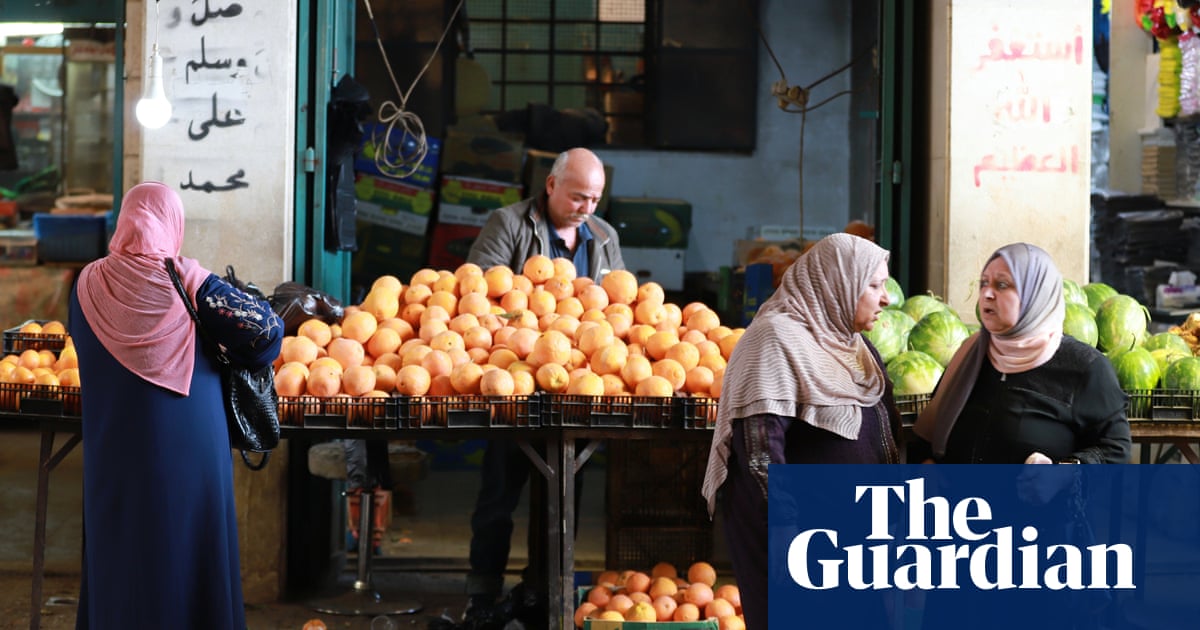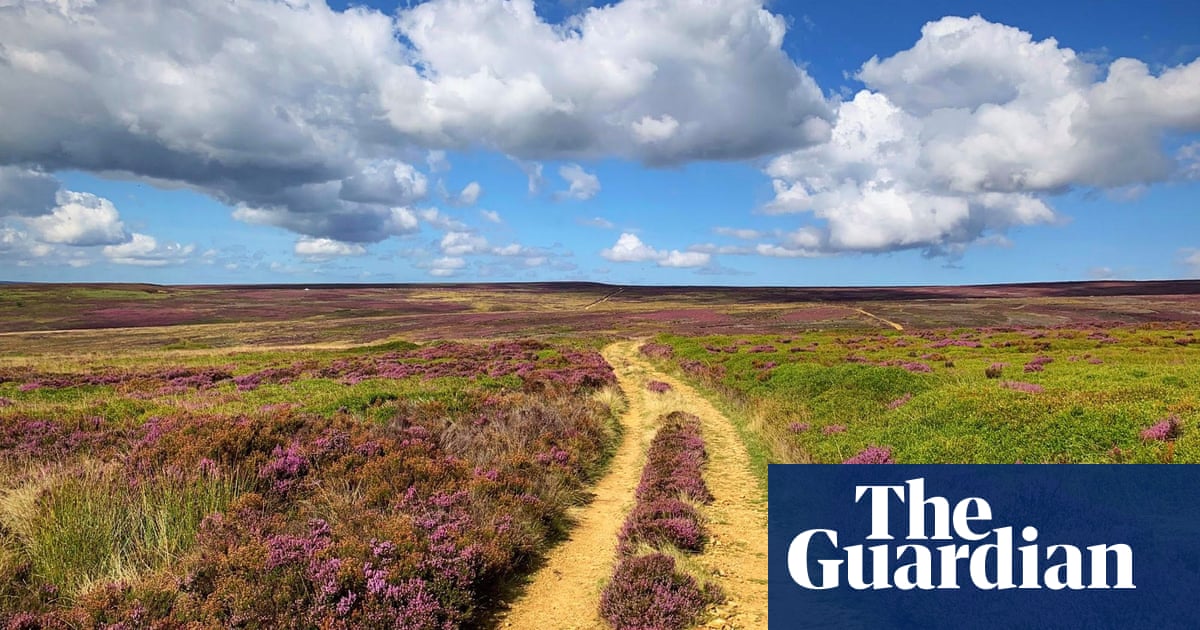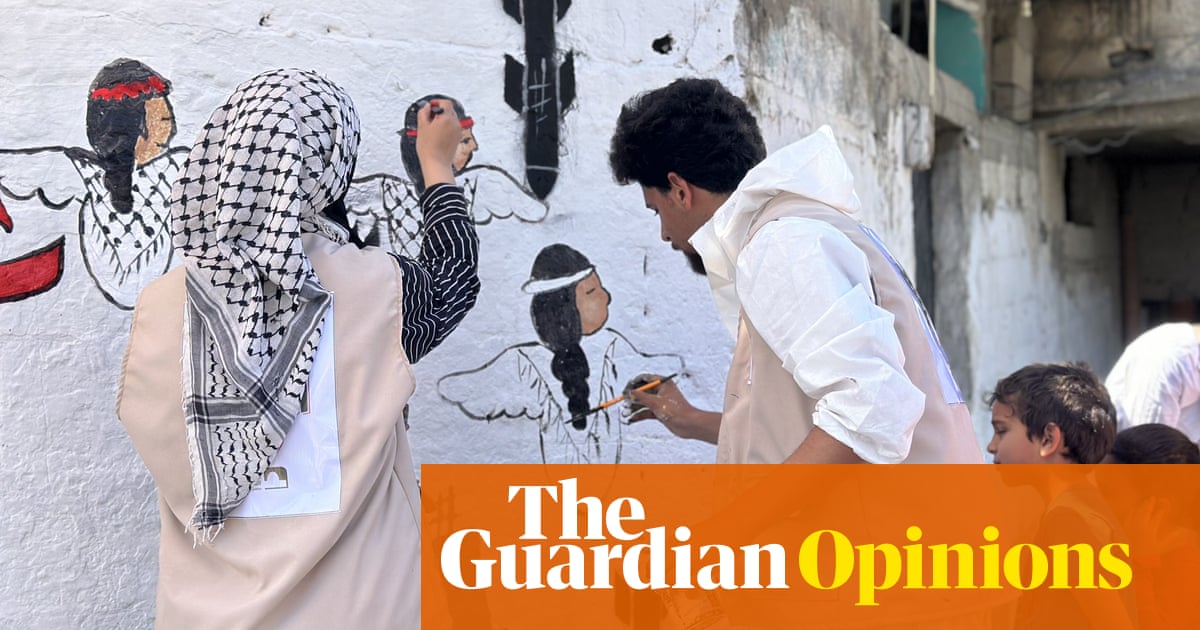
Fadi Kattan looked forlornly at the stalls inside the Bethlehem vegetable market bearing small quantities of oranges, watermelons and cauliflowers. “This stall should be heaped with products, he said. “And over there should be piles of aubergines and courgettes.”
The watermelons from Jenin looked too small for the season, while he wasn’t sure where the boxes of oranges were from. They would normally be from Gaza. At Um Nabil’s stall in the West Bank market where Kattan is a regular customer, she told him she could no longer afford to bring in the best small local cucumbers or piles of green cherries from her village of Artas.
Kattan, a chef with restaurants in Bethlehem and in London, opens his forthcoming book, named after the city where he grew up, by saying cooking is “how I tell Bethlehem’s story”. It was after the book had gone to print, when on 7 October Hamas attacked towns and kibbutzim in southern Israel, followed by an intense Israeli bombardment of Gaza, that daily life changed dramatically.
The destruction of Gaza’s agricultural land has meant no citrus, strawberries or vegetables, which would normally be sold in the West Bank at this time of year. A wave of attacks from Israeli settlers in the West Bank, combined with road closures and raids by Israeli forces, has also left farmers in the towns around Bethlehem struggling to farm or bring their products to market.
“The long-term impact will take years to recover from, but the impact on human beings will be even longer,” said Kattan. “People think the Palestinians have the tools to deal with this, but they shouldn’t be required to.”
Israeli checkpoints and an Israeli-built wall cut into Bethlehem, while dozens of Israeli settlements surround it in three directions. “These are expanding every day,” Kattan said. “The settlers are attacking villages around the town, the army is here practically every night.”
He fears for the future in Bethlehem, where his restaurant Fawda drew visitors for almost a decade to eat innovative versions of classic Palestinian cuisine, before it closed during the pandemic. Its November reopening has been put on hold, and Kattan has also paused the opening of his new six-room boutique hotel, Kassa.
Bethlehem received as many as 2.5 million tourists a year before the pandemic, welcoming everyone from pilgrims to artists – including many who came to sample Kattan’s food – but seven months of war, he said, had devastated the city’s economy. Palestinians are no longer able to cross the checkpoints into Israel for work, while thousands more are out of work because of the dip in tourism.
“All hospitality businesses have taken a hit in Bethlehem without exception,” he said. “Restaurants in the centre of the city are either shut down or are now opening at most two days a week. This is partly about tourism, but also people can’t afford it. Who in Bethlehem can afford grilled meat and mezes in a restaurant? Not many.”
The four generations of the Natsheh family, who run the butcher’s where Kattan used to buy lamb for Fawda, tell him that people who used to come in and spend their weekly wages from work in Israel are rarely able to afford meat. One customer who used to buy cuts of beef entrecote almost every day now buys five slices once a week.
As Kattan scours the market for ingredients and greets familiar faces, he encounters more stories of loss. A visit to a local baker means consoling him about his son, 27-year-old Hazem Nabil Danna, who suffocated to death inside a bakery in a nearby village after Israeli soldiers raided the area. The Israel Defense Forces (IDF) said there was “no direct connection between the IDF activity in the area and the death”, but that they were awaiting the results of an autopsy “for a thorough examination of the circumstances of his death”.
Kattan tries to temper his anger at Danna’s death while selecting spices from a shop he visited with his grandmother as a child, which should be lined with chocolate Easter eggs but instead is far more subdued, a few eggs clustered on one shelf. He pulls out a pungent jar of cloves and points out sumac from Hebron and thyme from Jenin.
From olive oil producers to salt sellers and winemakers, people across the territory are increasingly reluctant to transport their goods. At Kattan’s favourite shop for vinegary pickles and jars of tahini, Samer Daoudi, the owner, said he rarely travelled to his home town of Nablus, unlike before the war when he went each week.
For Kattan, showcasing Palestinian cuisine at his restaurant Akub in west London, and the launch of his forthcoming book are about maintaining a connection with land increasingly under threat.
“There is systematic destruction of heritage happening in Gaza … I really feel we are disappearing,” he said. Across the West Bank, he added, “the lands are disappearing and the farmlands are being attacked.
“Part of what has happened since 7 October has meant seeing a total dehumanisation of who we are. That’s how I rationalise talking about food, wine, art and culture, to say we are here, we have fantastic wine- and spirit-makers, food and chefs – a society that’s diverse and has been here for centuries.”
Knowing that people across the world will make the food in his book means that even with Palestinian farmlands under threat, cooking and eating the dishes they normally yield breathes life into the culture.
“For me the book brings hope,” said Kattan. “A cookbook makes these things that could be gone contemporary. People cooking these recipes is a way to keep the culture alive.”
Bethlehem: A Celebration of Palestinian Food, by Fadi Kattan, is published on 15 May by Hardie Grant at £28. To order a copy for £24.64, go to guardianbookshop.com












